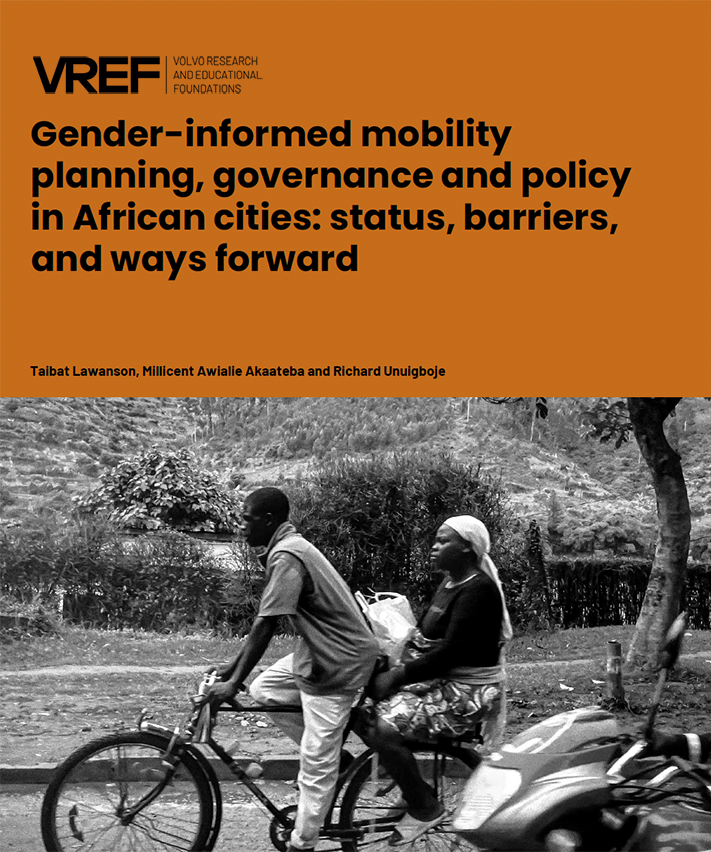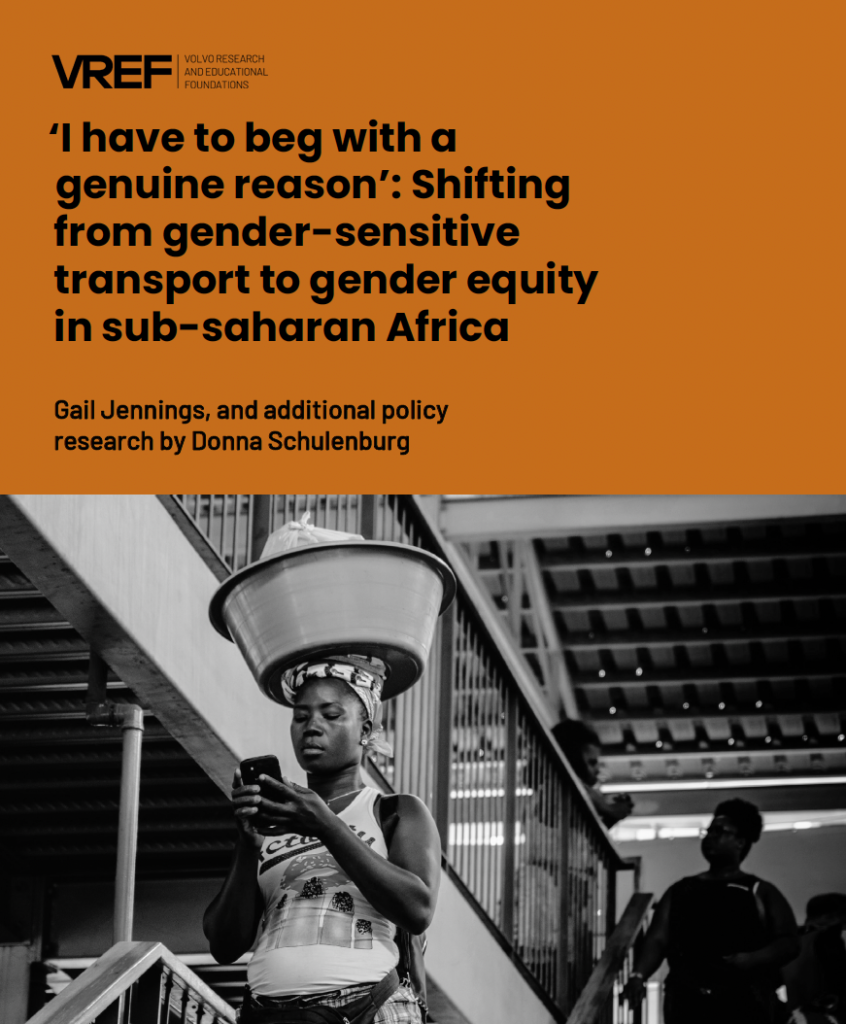Gender-informed mobility planning, governance and policy in African cities: status, barriers and ways forward
This paper focuses on the state of knowledge and practice with regard to implementing gender-informed mobility planning and policy in Africa. A key question in the paper is: considering that gender equity and inclusivity are explicit policy goals across the continent, why are there currently so few policy frameworks that directly address these issues? This

